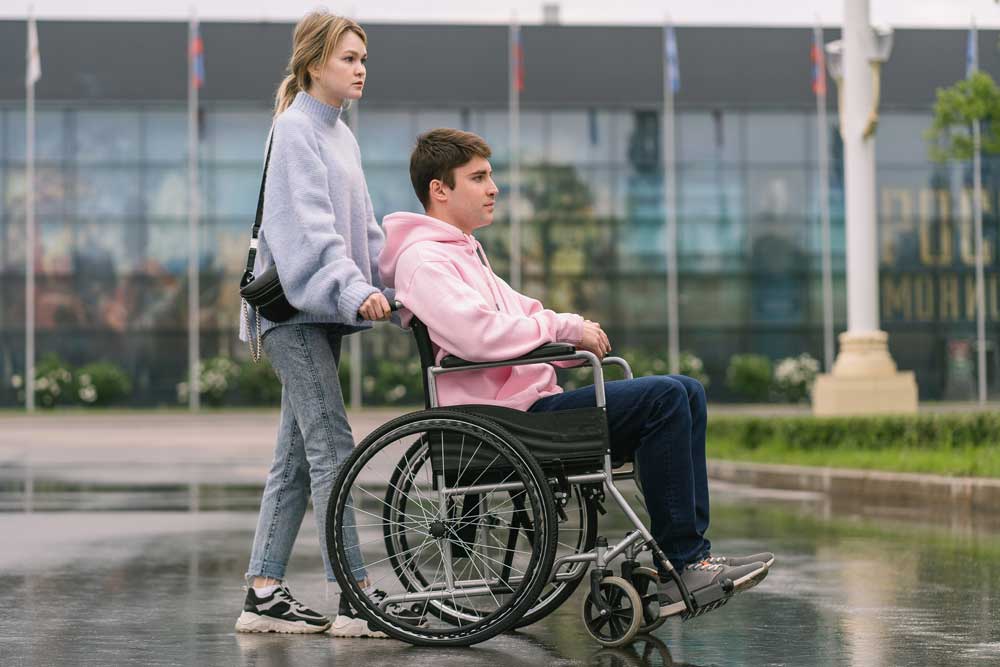Politicians in the state of Texas have passed medical malpractice laws that woefully under-pay permanently injured victims. And the doctors and hospitals responsible for medical negligence continue their profit-making business with small financial penalties.
Medical Malpractice Caps on successful medical malpractice lawsuits in Texas are grossly unfair to victims, according to Houston medical malpractice attorney Tim Riley, a pioneer in this legal specialty. Children are the most victimized by Texas laws because they have no income and are limited to a maximum of $250,000 in non-economic damages. This amount does not begin to compensate for the trauma of a life-changing medical error during childbirth or a teenager’s amputation of both arms and both legs due to medical negligence. The politicians in Texas should be protecting victims of medical malpractice, not the people and institutions that commit the deeds.
Non-economic damages have always been difficult to quantify because they are subjective. This category includes pain, suffering, loss of enjoyment in life, loss of companionship, inconvenience, emotional distress, and other non-monetary losses.
Is The US Healthcare System Broken?
The answer to the question above depends on the definition of broken. For purposes of discussion a summary of deaths, quality of care, and costs follows.
Deaths
A recent study by Johns Hopkins University focused on deaths caused by medical errors in the United States. The study covered an eight year period and found that more than 250,000 deaths per year can be attributed to medical errors. That makes “Medical Errors” the third leading cause of death in the United States, trailing only heart disease and cancer.
In addition, the United States has the highest rate of maternal mortality among wealthy nations. And the United States ranks poorly on infant mortality rates with numbers far higher than other Western nations such as the United Kingdom and France.
Quality of Medical Care
In a 2021 study of the health care system of 11 developed countries the United States ranked last. The countries studied, in order of rankings, were: Norway, the Netherlands, Australia, United Kingdom, Germany, New Zealand, Sweden, France, Switzerland, Canada, United States. The study ranked the countries on the basis of access to care, care process, administrative efficiency, equity, and health care outcome.
Costs
The United States leads the world on spending for medical and healthcare services. Healthcare costs as a percentage of Gross Domestic Product (GDP) and drugs consumed per person are the highest in the world.
GDP
In 2020 the United States spent 19.7% of its GDP on healthcare. It is an all time high and compares to 5% in 1960. The United States leads the world in this category.
Pharmaceutical Spending Per Capita In Selected Countries As Of 2020
The citizens of the United States spend far more on drugs than any country in the world. When compared to our Canadian neighbors, Americans are outspending them by $512 per person per year.
$1376 United States
$864 Canada
$663 Australia
$434 Netherlands
Major Arguments Supporting Medical Malpractice Caps In Texas
- reduce medical malpractice insurance premiums for doctors
- lower cost of health care and health insurance to public
- improve access to medical care
- discourage frivolous cases filed by medical malpractice lawyers
Major Arguments Against Medical Malpractice Caps In Texas
- malpractice caps grossly under-pay horribly injured victims
- medical liability and malpractice costs are only 2% to 2.5% of total health care spending; even a hypothetical elimination of malpractice awards would have a minimal effect on total health care costs
- malpractice caps inhibit and discourage the discovery and public release of medical errors by doctors, hospitals and other healthcare institutions
- discourages more research on preventing medical errors

Dangers Of Proposed Federal Medical Malpractice Laws
Politicians at the federal level are attempting to pass legislation for federal caps on medical malpractice claims.
Not only would it limit the amount of money a victim could recover, the proposals would also limit the compensation for medical malpractice lawyers.
In addition, one of the proposed laws would shorten the time frame for a victim to initiate a medical malpractice lawsuit. One version would only allow a one year time period from the date the patient discovers or should have discovered the injury. This time frame, called a statute of limitations, is considered severe by critics and could easily block legitimate claims against those responsible for medical errors.
These proposed federal laws concerning medical malpractice awards are NOT consumer-friendly. Rather, they would harm victims by reducing their compensation and their ability to enjoy life after medical errors. And in some cases, the statute of limitations would deny compensation to victims. Injured victims would be the losers. Large health care corporations, insurance companies, and doctors responsible for medical errors would be the winners and their profits and earnings would be boosted accordingly.
Tim Riley has 30+ years as a medical malpractice attorney in Houston and Texas and has represented numerous victims in medical malpractice lawsuits. There will always be reckless, negligent, and apathetic people in the medical community. They should be forced to compensate those who have been injured or killed due to their irresponsible behavior. A medical malpractice lawsuit will force the responsible parties to face a jury and pay for the victims’ medical costs, lost income, pain, suffering, and loss of enjoyment in life. Mr. Riley’s job is to help the victims and families repair their lives and move forward.









